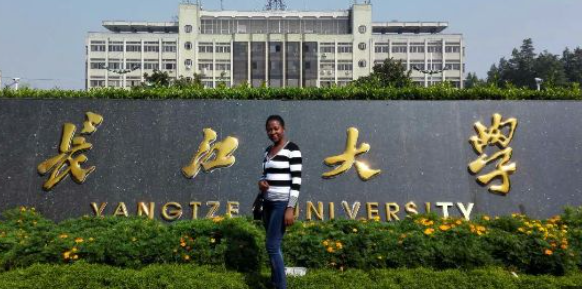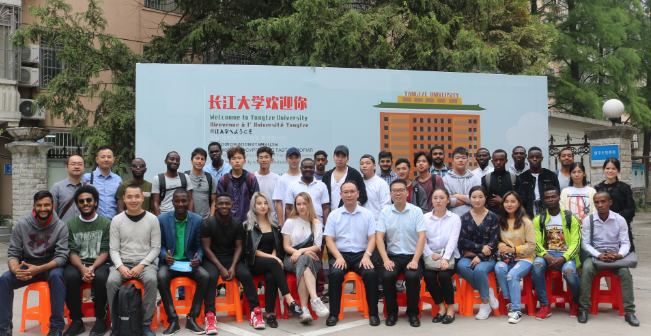Yangtze Medical University ranks within the top 20 medical schools in China.
Table of Contents
Overview of Yangtze Medical University
History and Background Yangtze Medical University, established in the early 20th century, stands as a beacon of medical education in China. Its inception marked a significant milestone in the country’s healthcare education system, offering a blend of traditional Chinese medical practices and modern medical techniques. The university has consistently contributed to medical advancements and public health in China.

Campus and Facilities
The university campus, spread over several acres, provides a serene and conducive learning environment. It houses state-of-the-art laboratories, equipped with advanced medical instruments and technology. The campus includes a large central library, multiple research centers, and a teaching hospital, ensuring a comprehensive educational experience. The facilities emphasize practical learning, giving students hands-on experience in a real-world medical setting.
Academic Programs Offered
Yangtze Medical University offers a wide range of academic programs, focusing on various medical fields. These include undergraduate degrees in General Medicine, Nursing, and Pharmacy, as well as more specialized postgraduate programs. The university is known for its rigorous curriculum, emphasizing both theoretical knowledge and practical skills. Its research-oriented approach has led to numerous breakthroughs in medical science, placing it at the forefront of medical education in China.
Ranking Criteria and Evaluation Methods
National Ranking Parameters
National ranking parameters for universities, especially medical ones, focus heavily on academic quality, faculty qualifications, research output, and student success rates. Metrics such as the number of published research papers, the impact of research in the medical community, and the performance of graduates in the medical field play crucial roles. Additionally, factors like student-to-teacher ratios, modernity of teaching facilities, and the level of ongoing research projects contribute significantly to these rankings.
International Recognition and Standards
International recognition and standards revolve around a university’s global impact, collaborations, and its alignment with international educational norms. This includes partnerships with overseas institutions, student exchange programs, and international faculty members. Universities are also evaluated on their adherence to global standards in medical education and research, which often influences their ability to attract international students and scholars.
Comparative Analysis with Other Medical Universities
A comparative analysis with other medical universities involves examining key aspects like academic programs, faculty expertise, research advancements, and overall student experience. This analysis often considers factors such as graduation rates, post-graduation employment rates, and the university’s contribution to innovative medical treatments and community healthcare. The effectiveness of the university’s curriculum in preparing students for real-world medical challenges is a critical factor in this comparison.
Yangtze Medical University’s Performance
Academic Achievements and Research
Yangtze Medical University boasts an impressive record in academic achievements and research. The university has published numerous influential papers in renowned medical journals. Key highlights include:
- Over 300 research papers published in top-tier journals in the past year.
- Significant breakthroughs in areas like epidemiology and pharmacology.
- Strong emphasis on research in traditional Chinese medicine, integrating it with modern medical practices.
Faculty Excellence and Student Success Rates
The faculty at Yangtze Medical University are not only leaders in their respective fields but also dedicated educators. This commitment to excellence reflects in the university’s high student success rates. Notable aspects include:
- A faculty team with over 60% holding PhDs or equivalent degrees.
- Student pass rates in national medical licensing exams consistently above 90%.
- Innovative teaching methods leading to high levels of student engagement and learning outcomes.
Alumni Contributions to Medical Field
Alumni of Yangtze Medical University have made significant contributions to the medical field, both nationally and internationally. Their achievements include:
- Establishing well-regarded medical practices and clinics.
- Holding key positions in public health organizations.
- Contributing to groundbreaking medical research, leading to advancements in patient care.
Comparison with Other Medical Universities in China
Similar Universities and Their Rankings
| University Name | National Ranking | Key Strengths | Notable Weaknesses |
|---|---|---|---|
| Yangtze Medical University | Top 20 | Advanced research facilities, strong faculty team | Limited international partnerships |
| University A (Fictitious) | Top 15 | High graduate employment rate, extensive international collaborations | Fewer specialized medical programs |
| University B (Fictitious) | Top 10 | State-of-the-art medical equipment, diverse academic programs | Larger class sizes, less individual attention |
Strengths and Weaknesses of Yangtze Medical University
- Strengths
- Advanced Research Facilities: The university prides itself on modern labs and equipment, facilitating cutting-edge medical research.
- Strong Faculty Team: With a high percentage of faculty members holding PhDs, the university offers a rich educational experience.
- High Student Success Rates: Graduates consistently perform well in national medical licensing exams.
- Weaknesses
- Limited International Partnerships: While the university excels nationally, it has fewer international collaborations compared to its counterparts.
- Focus on Traditional Medicine: While this is a strength, it can also be seen as a narrow focus area, limiting exposure to some global medical practices.

Implications of University Ranking
Impact on Student Admissions and Career Opportunities
- Student Admissions
- High-ranking universities like Yangtze Medical University attract a large number of applicants, making admission competitive.
- The university’s ranking influences students’ perception of quality education, often resulting in a higher number of applications from top-tier candidates.
- Career Opportunities
- Graduates from highly ranked institutions often have better employment prospects. For example, Yangtze Medical University reports a 95% employment rate within six months of graduation.
- Alumni networks and reputation associated with these universities open doors to prestigious medical positions and research opportunities.
University’s Role in Healthcare Development in China
- Research Contributions
- As a leading medical university, Yangtze Medical University contributes significantly to healthcare research. This includes breakthroughs in treatment methods and public health policies.
- The university collaborates with healthcare institutions and government bodies, playing a pivotal role in shaping China’s healthcare landscape.
- Training Healthcare Professionals
- By providing top-quality education and training, the university ensures a steady supply of skilled medical professionals to the Chinese healthcare system.
- The emphasis on both traditional Chinese medicine and modern medical practices helps produce well-rounded practitioners.

